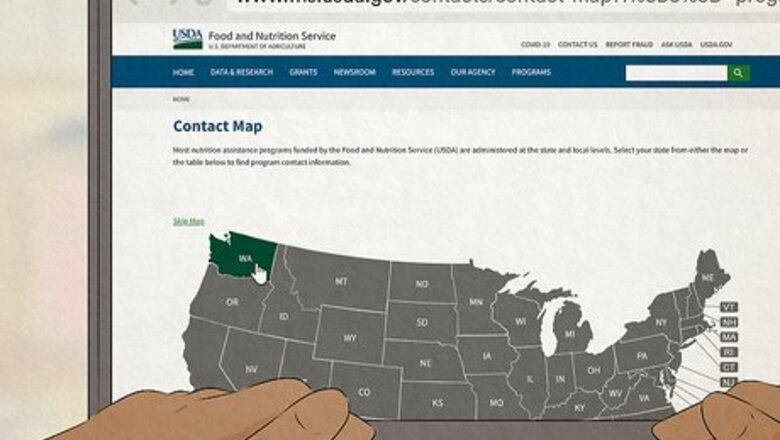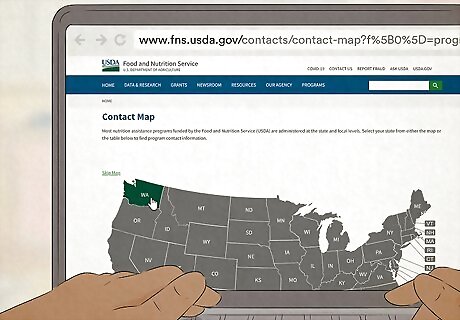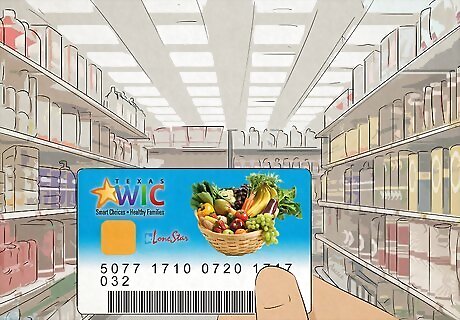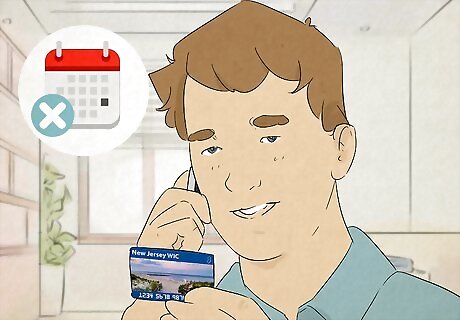
views
Cancelling Your WIC Benefits

Find the number for your WIC office. This information was likely provided to you when you started the program, so check through your records. But if you’re having trouble finding it, you can also call your county’s health department, and they can redirect you to your local office. The federal website for WIC benefits can also give you the contact information for your state’s WIC administration. Follow this link, and then select the state you live in: https://www.fns.usda.gov/contacts/contact-map?f%5B0%5D=program%3A32 Depending on where you live, the number for your local WIC office may not be the same as the customer service line for canceling a lost WIC card. If you do end up calling the customer service line instead of your local office, ask them if they can redirect you.

Call your WIC office. Let them know that you would like to cancel your participation in the program. You can tell them something like: “Hi, I’m calling to cancel my WIC benefits. I’d like to stop participating in the program, and allow other people to take my appointment slots and benefits. Thank you.” The WIC office may ask you for a reason why you want to leave the program, but you aren’t obligated to provide one. You can just say, “This was a choice I made due to some changing circumstances,” and leave it at that. If you are planning on moving to another state, you don’t need to cancel your participation in the program. Tell your local office that you are moving, and they can transfer your benefits to your new address.

Cancel any remaining appointments at the office. Letting the office know that you want to cancel your remaining appointments will help out other families in need, since appointment slots can be rare. Try to avoid stopping your participation in the program without letting your office know. Although you will automatically be removed from the program by simply not showing up to your appointments, doing so takes away appointment slots for others in need. To cancel your appointments, you can say something like, “Because I won’t be participating in the program any longer, please cancel my remaining appointments. I’d like them to go to other people who might need them.”

Use up any remaining benefits. If your local WIC agency doesn’t immediately cancel your card, you should be able to use your eWIC card to buy items until the end of the month. Feel free to take a trip to the grocery store to make any last-minute purchases. When you cancel your benefits, you can ask your local office if these benefits will still last until the end of the month. Different offices may have different guidelines here, so it doesn’t hurt to check.
Deciding To Cancel Your WIC Benefits

Consider canceling your benefits if your income has changed. If you’ve come into an additional source of money, you may no longer need your benefits. Since WIC comes with restrictions on what kinds of food you can purchase, you might choose to buy other products when you’re off the program. Each state decides its own income cutoff for WIC benefits, which falls anywhere between 100% to 185% of the federal poverty line. For a household size of 3, the poverty line is currently at approximately $22,000 a year in annual income. This means that if you have a household of 3 people, your state’s cutoff for WIC benefits will fall anywhere from $22,000-$40,700 (which is 185% of $22,000). Contact your local office to find out what their income cutoff is. As a participant in the program, your eligibility will be reassessed every 6 months. You might choose to cancel your benefits ahead of time if your income level places you outside of eligibility.

Cancel your WIC benefits if you no longer want to attend appointments. Being a participant in a WIC program comes with some obligations, including regular meetings with WIC staff. If you’re finding these meetings particularly burdensome, you might choose to cancel your participation.

Choose to leave the program for a personal reason. Giving the WIC office a reason for leaving the program is totally up to you. You have the right to decide which sources of support you accept. There is no need to feel pressured to explain the choices that you decide are best for your family.


















Comments
0 comment